Iranian Pilots Readying For Migration As Drivers
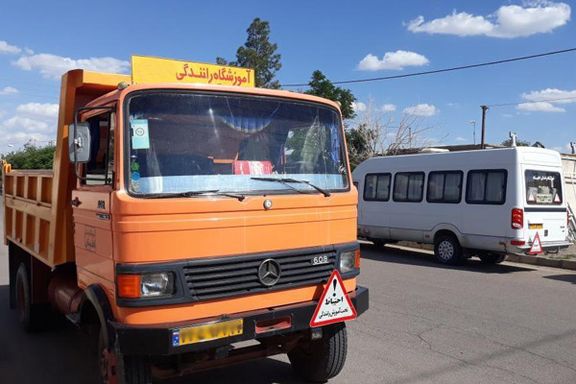
A wave of Iranian pilots are seeking commercial drivers' licenses as a path to migrate abroad, says the head of the Passenger Transport Companies Union.

A wave of Iranian pilots are seeking commercial drivers' licenses as a path to migrate abroad, says the head of the Passenger Transport Companies Union.
Ahmadreza Ameri, during an interview with ILNA, shed light on the increasing interest of individuals with higher education backgrounds, including pilots, in obtaining commercial drivers' licenses as a strategic move towards migration opportunities. He admitted, "Today, we see individuals with higher education, including pilots, who are seeking to obtain a commercial drivers' license for migration."
This unconventional career shift among pilots is driven by the realization that possessing the license opens doors to opportunities in the cargo transportation sector, enabling them to work as bus or truck drivers. Importantly, several countries are currently offering attractive incentives, including residence permits and competitive salaries, often amounting to several thousand dollars, to drivers in the cargo transportation industry.
The desire for migration from Iran has been on the rise in recent years, encompassing not only educated professionals but also individuals from various occupational backgrounds such as the healthcare sector. Several factors contribute to the trend, including political and economic instability, rampant systemic corruption, the adverse effects of sanctions, a depreciating national currency, and inflation.
The Iran Migration Observatory's latest annual outlook underscores the scale of this migration phenomenon. The United Arab Emirates (UAE) stands out as the host to the highest number of Iranians living abroad, with over 450,000 Iranian-born residents. This is followed by countries such as the United States, Canada, Germany, Turkey, and the United Kingdom, as Iranians increasingly seek improved living standards and economic opportunities beyond their homeland.
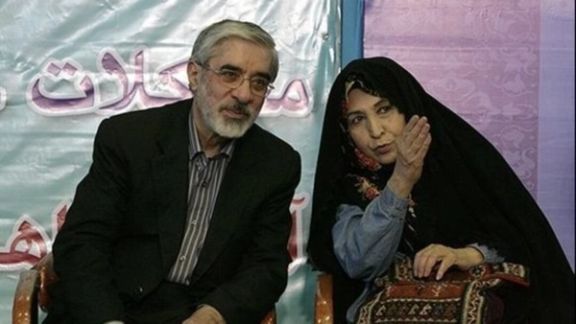
Circles close to prominent Iranian dissident figure Mir-Hossein Mousavi have raised concerns regarding the health of Mousavi and his wife who are under house arrest.
Mousavi, a former prime minister and Zahra Rahnavard, have been under house arrest, living in seclusion under the control of security forces at their home since 2011. The situation arose when they and former Majles Speaker Mehdi Karroubi were put under house arrest for leading the protests the post-2009 presidential election protests, which followed the contested election and the subsequent re-election of populist Mahmoud Ahmadinejad as Iran's President.
The Telegram channel Kaleme reported Tuesday that medical examination results handed to Mousavi and his wife do not conform to the actual symptoms of their medical conditions.
The channel, which is close to Mousavi and his supporters, revealed that medical test results pass through several security layers before reaching the two detainees, and do not reflect the extreme changes in their conditions during the past few months.
Some Iranian analysts have charged that what has been revealed in this report might indicate that the government is gradually murdering the two.
The Telegram channel added that their health conditions have visibly deteriorated after Mousavi and Rahnavard issued a statement earlier this year and supported the Woman, Life, Freedom movement and called for a referendum to change the regime based on people's demands.
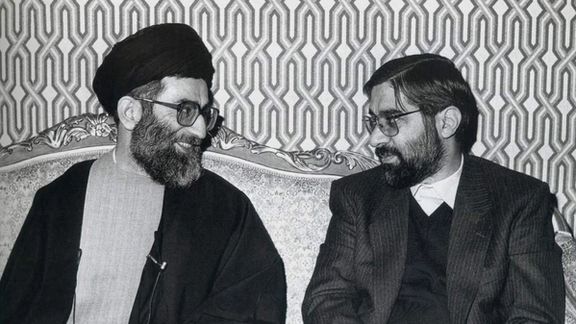
Meanwhile, unusual electronic signals are beamed constantly into their house to disrupt their communication with the outside world and these signals are likely to have affected their health, Kaleme said. Furthermore, their living situation remains highly restrictive, with security forces maintaining complete control, including holding all the keys to the property. Notably, Mousavi and Rahnavard are prohibited from accessing the rooftop water tank, which serves as their source of drinking water. The report even suggests that political allies of Mousavi fear that the water in the tank could have been tampered with or poisoned.
The Telegram channel also mentioned that the same concern also exists about food delivery to the house.
The report also highlighted that there has never been any acknowledgment of responsibility from any individual, security agency, or judicial body regarding the decision to place the Mousavi family under house arrest. This raises suspicions that the government may be using their health as a means to suppress their voices. Kaleme stressed the importance of holding the Iranian government accountable for any threats to the well-being of Mousavi and Rahnavard.
Meanwhile, in an interview with Iran International TV, Iranian political analyst Morteza Kazemian charged that the government's intervention and its total control over the medical examinations of Mousavi and Rahnavard could be interpreted as an attempt to gradually murder them under house arrest.
Another Iranian political analyst Jamshid Barzegar told Iran International TV that 6 Iranian inmates have lost their lives in Iranian prisons in recent months as security forces ignored their medical problems. Barzegar also called this a "gradual murder" and said that this has been a usual practice in Iranian prisons for a long time now. He said this report by Kalame should be taken seriously as the Islamic Republic might be attempting to terminally silence Mousavi his wife as vocal critics of the system.
Yet another analyst, Ali Hossein Ghazizadeh told Iran International that the information about the case reveals the government is most likely trying to kill Mousavi and Rahnavard by gradually poisoning them.
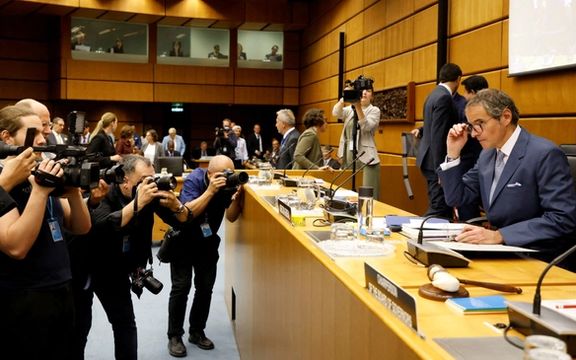
Sources close to the United Nations’ nuclear watchdog say the United States and its allies will not propose a resolution against Iran at the upcoming IAEA Board of Governors meeting.
Vienna-based journalist Stephanie Liechtenstein cited diplomatic sources as saying that no resolution censuring Tehran’s nuclear program is planned for the meeting, slated to start on September 11.
The International Atomic Energy Agency did not adopt any resolution against Iran also in its previous meetings in March and June. IAEA Director General Rafael Mariano Grossi visited Iran in early March and announced new arrangements with Tehran to restore the monitoring of nuclear enrichment activities.
However, despite Grossi's claims of a deal to return to a closer monitoring process and resolve the issue of three sites found to have been contaminated by traces of uranium, no progress has been made since March. The only result of his trip was that the West refrained from censuring Iran at the following IAEA board meetings.
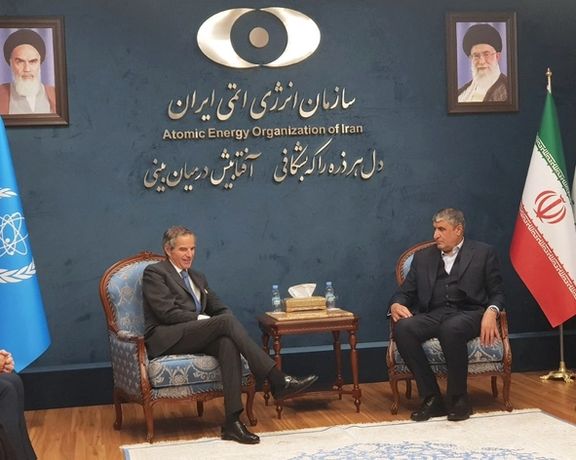
Liechtenstein noted that “Instead, E3 (France, Germany, and the UK) and US are drafting a joint statement that they will open up for co-signature from other countries.”
The joint statement is seen as a symbolic move against the backdrop of a reported secret deal between Tehran and Washington, announced as a prisoner swap agreement. Iran will release five Americans in exchange for its funds released from banks in South Korea and Iraq, blocked after the US withdrew from the 2015 JCPOA nuclear deal.
In reports to diplomats of countries forming the board of directors of the IAEA, the watchdog’s experts say that Iran's stock of uranium enriched to 60 percent purity, close to weapons grade, continues to grow but it grew just seven percent in the last three months compared with a 30-percent increase in the previous quarter.
The report was not officially released by the IAEA and was only reported in parts by some agencies such as the Associated Press, Reuters and Bloomberg. This was the excuse Vedant Patel, the Deputy Spokesperson for the US Department of State, used to dodge questions about the report in his press briefing on Tuesday.
“I am not going to comment on an IAEA report that has not been made public yet,” he said, adding that “Iran’s production of uranium enriched up to 60 percent has no credible peaceful purpose.”
Mocking the ‘joint statement,’ deputy director of the Foundation for Defense of Democracies (FDD) Andrea Stricker said that “US policy has allowed Iran to accumulate 5, 20, 60% enriched uranium and maintain nuke breakout capability, not cooperate on IAEA probe or reinstall cameras, hide away advanced centrifuges, and get $10 billion and unhindered oil exports.” “Why bother with a joint statement?”
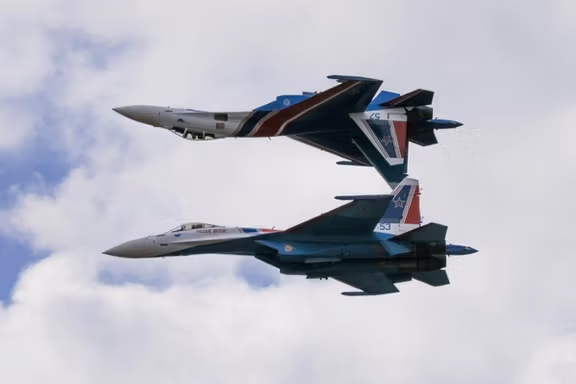
Iran's pursuit of advanced warplanes from its ally Russia to modernize its aging fleet has faced numerous hurdles, plunging the regime into a state of uncertainty.
While Iran recently took delivery of a batch of Russian-made Yakovlev Yak-130 pilot training aircraft, these light jet trainers fall far short of the twin-engine, supermaneuverable air superiority Russian fighters, like the Sukhoi Su-35, which Iran had been seeking for years.
For a considerable time, Iran had been making announcements about the "imminent" delivery of Su-35 fighter jets. However, the hopes of acquiring these advanced aircraft were dashed when Iran's Defense Minister confirmed in July that the deal had collapsed. Moreover, Iran's claims of domestic production capabilities for such fighters have yet to materialize. While Iran has supplied Russia with kamikaze drones for its war on Ukraine, these efforts have led to several rounds of sanctions against the Iranian regime.
Paradoxically, Moscow has been unwilling to sell modern fighter jets or advanced aerial warfare systems to Iran. This reluctance stems from a range of concerns, including geopolitical considerations and regional stability.
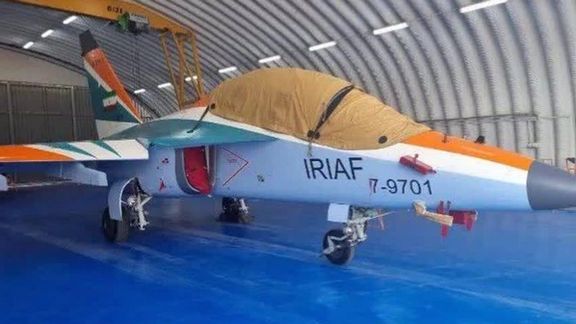
One primary factor contributing to Russia's hesitancy to supply Iran with high-tech fighter jets is the absence of bargaining leverage on Iran's part. Iran's economic challenges, compounded by international sanctions, have limited its ability to secure favorable terms for such purchases. On a similar note, China has refrained from providing Iran with high-tech fighter jets, as Beijing is wary of potential US retaliation. What's more, China is known to be cautious about jeopardizing its own programs, as it seeks to profit from weapons deals. For example, Iran prefers to pay in oil and natural gas, rather than dollars or euros, in its dealings with China.
According to Zhou Chenming, a Beijing-based defense analyst, China has already accumulated significant energy reserves and is primarily focused on making money through arms deals. Consequently, China has been reluctant to engage in potential deals involving its Chengdu J-10C fighter jets with Tehran. Even attempts by the United States to sell advanced F-16 fighter jets to Taiwan, which concerned China greatly, did not persuade Beijing to offer its Chengdu J-10 fighter jets to Iran in retaliation.
The political climate between Iran and its two major allies, Russia and China, while often collaborative on other fronts, has not yielded significant advancements in Iran's deteriorating aerial arsenal. A significant factor contributing to Russia and China's caution is the delicate balance of their relations with Arab countries in the Middle East. Many Arab nations have expressed their unease and opposition to Iran acquiring fighter jets, fearing that it could shift the balance of power in the region. This apprehension has encouraged Russia and China to tread cautiously, as they do not wish to strain their relationships with key Arab trading partners.
Considering these challenges, the arrival of two Yak-130 light training aircraft in Iran has been portrayed by the regime's media as evidence that Russia would eventually start supplying its modern warplanes to Iran. Some analysts have speculated that the war in Ukraine has disrupted the delivery of Su-35s, leading to delays.
Defense Minister Ashtiani, in an article published in the government's Arabic-language daily al-Vefagh newspaper, claimed that all arms embargoes imposed on Iran are set to expire soon, expressing eagerness to expand military ties. European Union ballistic missile sanctions are scheduled to expire on October 18 under the UN resolution endorsing the 2015 nuclear deal. However, European diplomats are considering retaining these sanctions.
Analysts like Sasan Karimi have suggested that concerns by the US and Europe about Iran's plans to acquire high-tech fighter jets may have eased due to recent reports of behind-the-scenes negotiations between Tehran and Washington. While the exact timing of any Su-35 delivery remains uncertain, some believe that it is more logical for this to occur after the expiration of sanctions in October.
The aging nature of Iran's military aircraft is no secret. Some of Iran's fighter jets, like the F-4 and F-5, are well over half a century old, while the more advanced F-14 was procured before the Islamic revolution of 1979. Given Iran's pressing need to modernize its military fleet, China and Russia currently remain Iran's only options for procurement. This is because other fighter-producing countries, such as the United States, Europe, Sweden, and France, are unlikely to supply any weapons. Additionally, the production of fighter jets in Japan and South Korea is closely tied to joint programs with the United States.
Even if Russia and China were to consider supplying Iran with newer fighter jets, it is highly likely that the numbers would be limited to avoid posing a substantial threat to Tehran’s regional rivals. According to different sources, Russia itself has about 110 to 150 Sukhoi Su-35s.
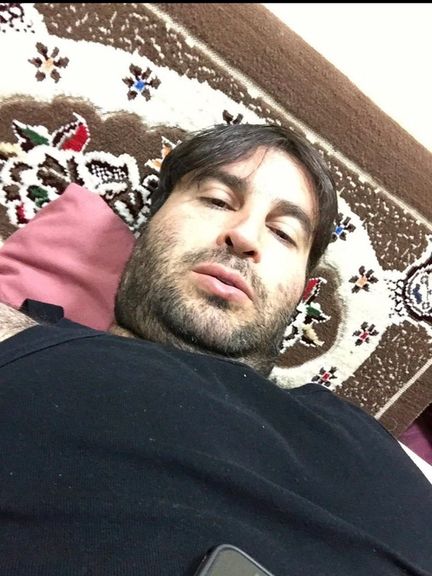
Another startling revelation has emerged, implicating officials in the Islamic Republic of Iran in a series of explicit sexual videos.
Among the individuals named in these videos is Mohammad Bagher Bazrafshan, the commander of the Basij base in Tehran's Evin district, whose alleged involvement has sparked considerable public concern and outrage.
The Telegram channel Radio Gilan, known for disseminating such materials, reported on Saturday, supported by visual evidence, that the head of the Crisis Management Supervisory Committee sent a confidential letter to the Director-General of the Tehran Municipality's Inspection Department.
The letter detailed an incident in which Mohammad Bagher Bazrafshan purportedly brought young men to his office after regular office hours, where they remained behind closed doors until the early morning hours.
According to this report, initial reports to the Director-General were disregarded, possibly due to Bazrafshan's association with officials appointed by Mohammad Bagher Ghalibaf, the current Speaker of the Iranian Parliament. However, the Crisis Management Supervisory Committee eventually obtained Bazrafshan's mobile phone during a work meeting, subsequently revealing its contents.
It is important to note that the accuracy of these claims cannot be independently verified. Nonetheless, the information disclosed by the administrator of "Radio Gilan" appears to have been meticulously documented over several months.
Bazrafshan, formerly part of Ghalibaf's security detail, currently serves as the commander at the Evin Basij base.
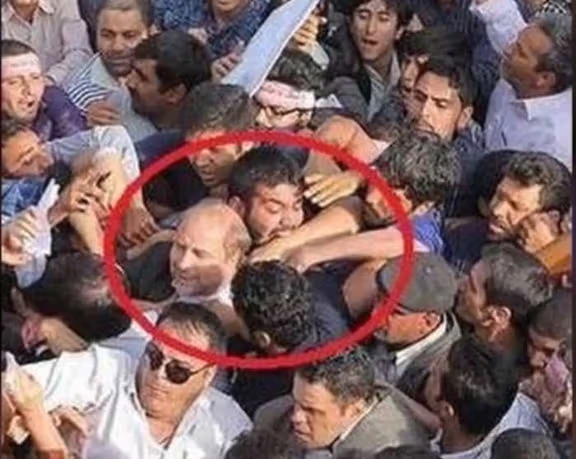
In the aftermath of these revelations, additional videos and images allegedly featuring Bazrafshan have circulated widely on social media platforms. One particularly controversial video is said to depict Bazrafshan engaging in explicit acts with another individual wearing red women's lingerie, purportedly the deputy of one of Tehran's Basij bases.
In the past several weeks, Radio Gilan, run by Germany-based journalist Payman Behboudi, has released three different videos that have raised a storm on Persian social media.
In the first video, a male City Council member of Bandar Anzali in the northern province of Gilan, was seen smoking opium and masturbating. The second video showed an official engaging in sex with a young man, and the third, released two days ago, shows a cleric engaged in sex with the husband of his wife’s sister. Radio Gilan has also published several screenshots of a sex chat between the cleric, Mehdi Haghshenas, and his brother-in-law.
Many social media users say they are outraged by the hypocrisy of the regime and its affiliated clerics and officials rather than the same-sex relationships between consenting adults.
Late in July, Ghalibaf criticized the leaking of the videos, following similarly critical remarks made by hardliner lawmakers on the parliament floor who claimed that it goes against Sharia law.
This is a typical response by regime officials in Iran who usually advocate ‘killing the messenger’ when faced with evidence of corruption or forbidden activities by insiders. Meanwhile, what Sharia in Iran clearly forbids is homosexuality among men, which it says is punishable by death.
Some analysts speculate that the release of this series of videos, revealing moral misconduct among mid-level officials of the Iranian regime, reflects internal power struggles and disputes. The surreptitious placement of cameras in the homes and workplaces of officials and regime affiliates, followed by the subsequent public exposure of this material, raises questions about the motivations behind these actions, which typically do not involve ordinary citizens.
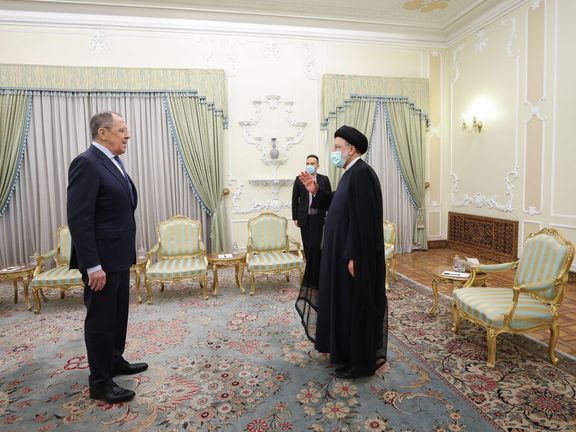
Iranian authorities have suspended the operations of the Entekhab news website, citing violations of press laws and decisions made by the Supreme National Security Council.
While the suspension has been reported by news outlets aligned with the Iranian regime, the precise reasons for the suspension have not been officially communicated to the website's owner or its management.
The Tasnim news agency, which is affiliated with the IRGC, reported on Monday the suspension of the Entekhab news website in accordance with "Article 12 of the Press Law." Tasnim also reported that the case had been referred to the judiciary for further investigation.
The suspension of Entekhab follows the examination of a video and report titled "Iran's Brand Auction: Why Has Iran's Foreign Policy Weakened So Much?" by the media supervisory body during its session on Monday. According to Tasnim, the content of the video was found to be "beyond legal boundaries, contrary to national interests, and against the fundamental policies of the Islamic Republic of Iran in foreign policy."
The video, which was published on August 22 on the Entekhab website, contained critical commentary on Iran's current foreign policy under the leadership of President Ebrahim Raisi. It asserted that the Raisi administration's "purely Eastern-oriented policy and Russia-centric approach" had dealt a significant blow to Iran's centuries-old foreign policy traditions.
It is worth noting that the Entekhab website had gained prominence in recent years, particularly after the closure of the Entekhab newspaper. The website was known for its alignment with a broad spectrum of political figures, including Akbar Hashemi Rafsanjani and the previous administration under President Hassan Rouhani.






